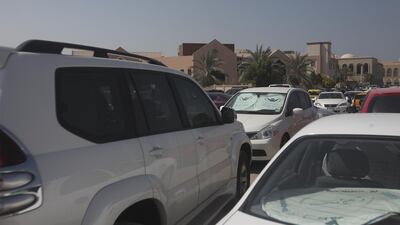Accident experts often cite the Swiss cheese principle when it comes to improving safety. Imagine multiple slices stacked side-by-side. The holes in the cheese represent shortcomings, with accidents usually occurring only when all the holes line up. This means that for every accident that happens, there are many near-misses because not all the holes happen to be aligned. But they could have been.
Dealing with these is the key to improving safety, the experts say. The theory goes that accident prevention systems in fields as diverse as aviation, engineering and health care are pretty similar.
This principle is pertinent to the shocking statistics that have emerged on the deaths of children left alone in cars or school buses in the UAE. Every summer there are a handful of tragic reports of children who died in such circumstances, but the true extent of the problem was revealed when the Dubai police reported they had rescued 130 children left alone in cars so far this year.
It is an alarming number and for every case that’s reported there are probably many others that did not come to light. Common sense would suggest that for every intervention by the police, there must be many other similar situations that could have ended in tragedy.
In accordance with the Swiss cheese principle, what needs to change is the community’s overall approach to safety rather than a direct response to each of the fatalities that occur each summer.
Changing this mindset is important. The country’s attitude to issues of safety must embrace risk-management as well as measures to minimise risk.
The recurring tragedy of home-alone children falling from windows of high-rise buildings is a good example. Despite new laws designed to ensure that high-rise windows cannot open sufficiently for a child to fall out, parents and caregivers need to understand that it is dangerous to leave a child unattended, no matter how well-bolted the windows of the family home.
Why take the risk and help those holes in the stack of Swiss cheese fatally line up?

